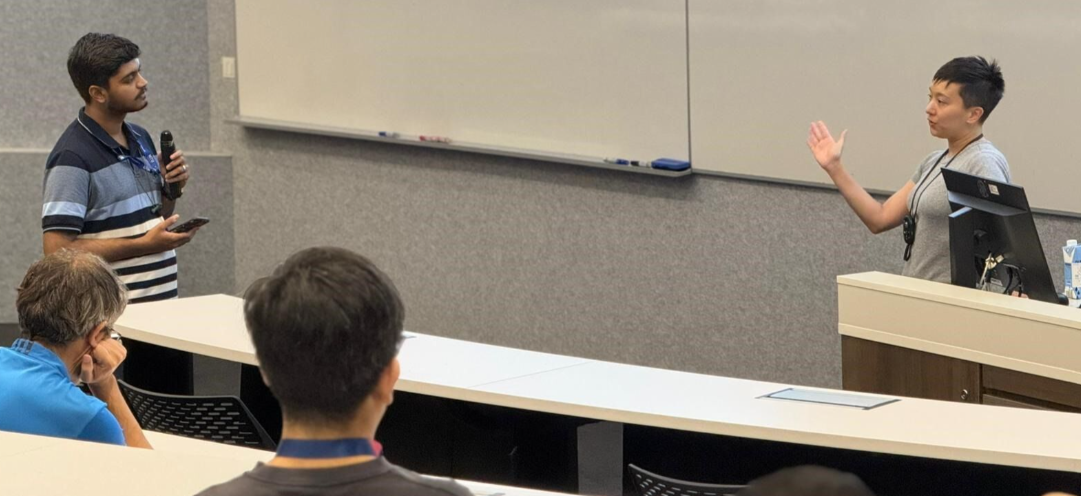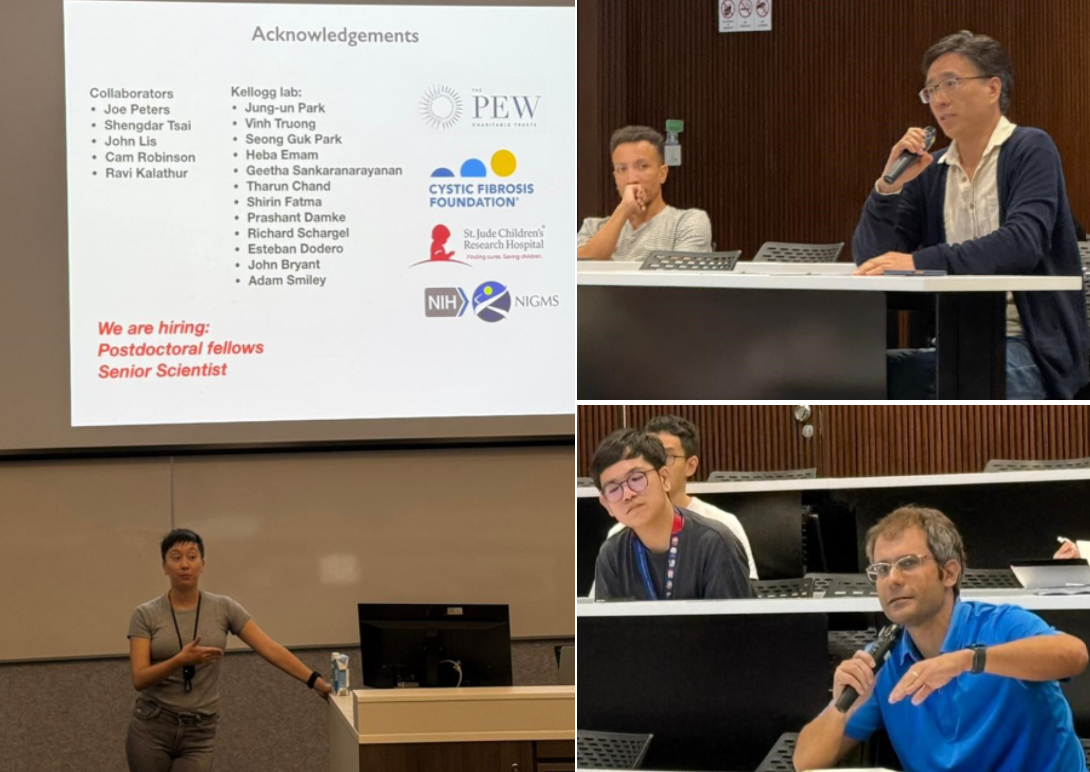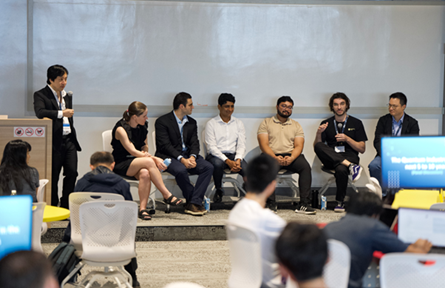Understanding and Engineering Transposons for Next-Generation Genome-Editing by Dr Elizabeth Kellogg
IAS@NTU STEM Graduate Colloquium Jointly Organised with the Graduate Students' Clubs

The colloquium, hosted by IAS@NTU in collaboration with the Graduate Students' Clubs of CCEB and SBS, featured an enlightening talk by Dr Elizabeth Kellogg, Associate Member at St. Jude Children's Research Hospital. Titled "Understanding and Engineering Transposons for Next-Generation Genome-Editing," the talk explored the mechanisms of CRISPR-associated transposition systems (CAST), which enable precise guide RNA-directed DNA insertions without the need for double-strand breaks, thus offering a safer alternative to traditional gene-editing techniques.
Dr Kellogg's research focuses on harnessing transposons, often referred to as "jumping genes," which have the natural ability to move within genomes and reshape genetic material. Her lab seeks to understand the complex interactions of components like TnsB, TnsC, TniQ, and Cas12k, which work together to achieve programmable DNA insertion at specific sites. Unlike traditional CRISPR systems that rely on cutting the DNA, CAST systems enable site-specific integration, reducing the risks associated with genome instability. Dr Kellogg explained how her lab uses advanced Cryo-Electron Microscopy (Cryo-EM) to visualise these interactions, thereby providing crucial structural insights into how these systems function.
 Insightful sharing on CRISPR-associated transposition systems.
Insightful sharing on CRISPR-associated transposition systems.
The colloquium also highlighted the evolutionary history of transposons and their relationship to CRISPR systems, noting that transposons are considered the ancestors of CRISPR-Cas. By understanding the evolution and mechanisms of these systems, researchers can explore new applications in synthetic biology and genome engineering. Dr Kellogg also addressed fundamental questions about the mechanisms by which RNA guides DNA insertion and the precision of these insertions.
Dr Kellogg's presentation covered the potential applications of CAST systems in genetic research and therapeutic contexts, particularly in improving the precision and efficiency of genome-editing technologies. She also emphasised the use of genomic tools such as biochemical, structural, and genetic approaches to uncover how programmable transposons could be repurposed for next-generation genetic modification.
The colloquium was followed by an engaging Q&A session, where participants from various fields discussed the challenges and potential of CAST systems in medical genetics and the ethical considerations of genome-editing. The audience's enthusiasm reflected the broad interest in using transposons for innovative genome-editing solutions.
Dr Elizabeth Kellogg's colloquium provided a fascinating look into the future of genetic engineering. By integrating advanced structural biology techniques with genome-editing applications, her research is paving the way for safer and more precise genetic modifications, with implications for a wide range of scientific and medical fields.
 Engaging Q&A with the audience.
Engaging Q&A with the audience.
Written by Qi Yuxia | NTU School of Biological Sciences Graduate Students' Club
"I enjoyed the speaker's way of presenting the topic and her energy!" - Aruzhan Beibitkyzy | PhD Student, CCEB NTU
"Broadening my horizon" - Zhang Weijie | PhD Student, MSE NTU














/enri-thumbnails/careeropportunities1f0caf1c-a12d-479c-be7c-3c04e085c617.tmb-mega-menu.jpg?Culture=en&sfvrsn=d7261e3b_1)

/cradle-thumbnails/research-capabilities1516d0ba63aa44f0b4ee77a8c05263b2.tmb-mega-menu.jpg?Culture=en&sfvrsn=1bc94f8_1)






